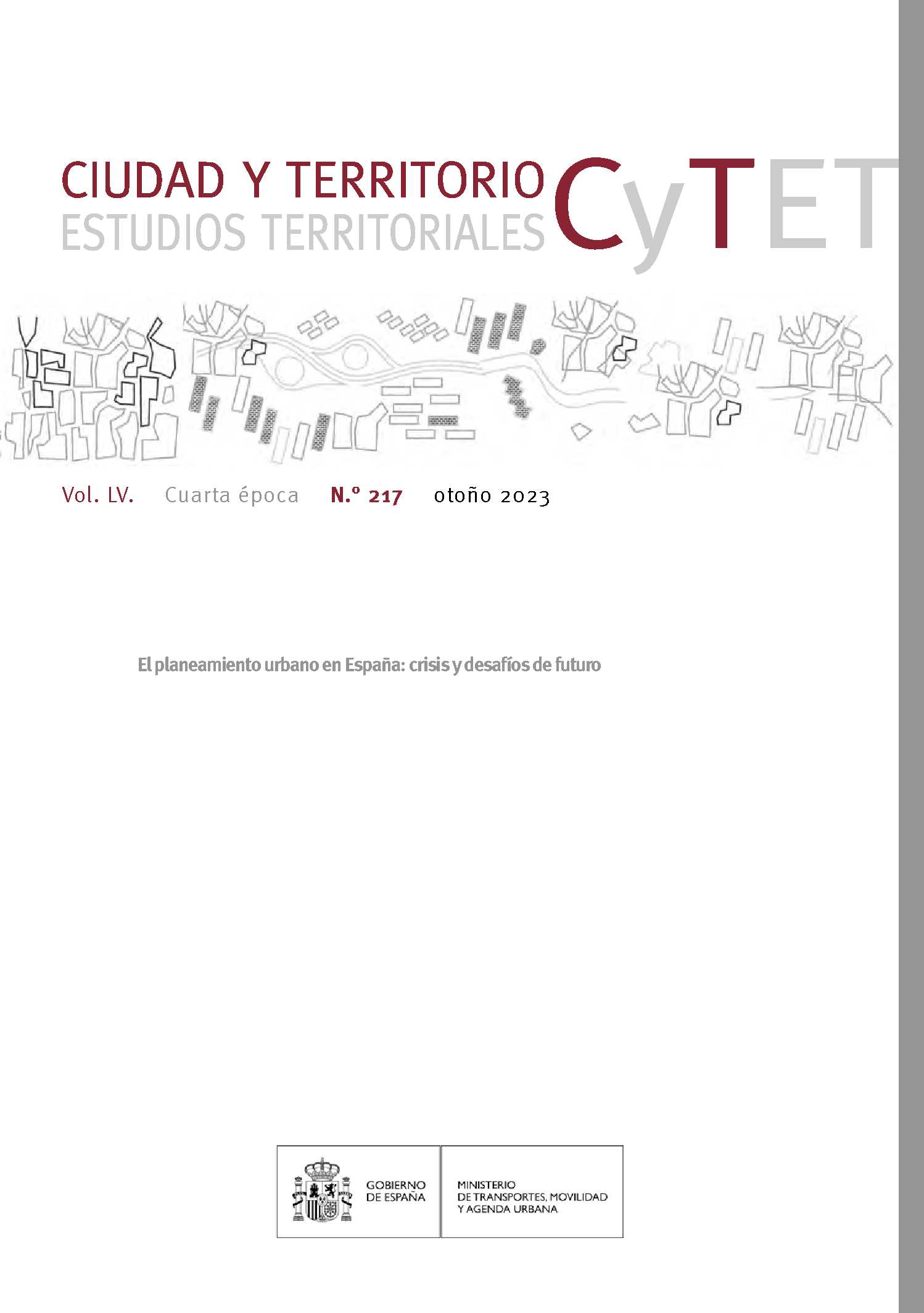The nullity of Urban Planning: a perspective from the experience of the Supreme Court
DOI:
https://doi.org/10.37230/CyTET.2023.217.8Keywords:
Urban Masterplan, Nullity, Court ruling, Jurisprudence, ProportionalityAbstract
This article examines the crisis derived from the nullity of urban planning from the experience of the Supreme Court. It begins analyzing how this legal crisis is determined by the nature of regulatory norms of the Urban Masterplans and, by a derivation tied to it: that the illegality of the aforementioned regulatory norms cannot have another consequence than the full nullity of of the Masterplans. Some of the nullity causes can be classified as material (non-existent or deficient environmental evaluation, absence of water resources, mandatory reports, etc.) formal (such as defects in the public audience). Taking into account the need to apply the principle of proportionality in the urban field, the paper reminds how many experts from various fields have considered the legal consequence of the nullity of planning to be disproportionate. Finally, some jurisprudential advances where nullity is modulated are presented, such as the General Masterplan of Yaiza (Lanzarote), the Special Plan for Urban Control of Madrid or the General Masterplan of El Puerto de Santa María (Cádiz).
Downloads
References
Villar Rojas, FJ.,& González Sanfiel, AM. & Hernández González, F.L. (2019): Crisis del planeamiento urbanístico: alternativas. Thomson Reuters Aranzadi
Published
How to Cite
Issue
Section
License
Copyright (c) 2023 Rafael Fernández-Valverde

This work is licensed under a Creative Commons Attribution-NonCommercial-NoDerivatives 4.0 International License.
Considering the provisions of the current legislation on Intellectual Property, and in accordance with them, all authors publishing in CyTET give -in a non-exclusive way and without time limit- to the Ministry of Transport, Mobility and Urban Agenda the rights to disseminate, reproduce, communicate and distribute in any current or future format, on paper or electronic, the original or derived version of their work under a Creative Commons Attribution-NonCommercial-NoDerivative 4.0 license International (CC BY-NC-ND 4.0), as well as to include or assign to third parties the inclusion of its content in national and international indexes, repositories and databases, with reference and recognition in any case of its authorship.
In addition, when sending the work, the author(s) declares that it is an original work in which the sources that have been used are recognized, committing to respect the scientific evidence, to no longer modify the original data and to verify or refute its hypothesis. Author(s) also declare that the essential content of the work has not been previously published nor will it be published in any other publication while it is under evaluation by CyTET; and that it has not been simultaneously sent to another journal.
Authors must sign a Transfer of Rights Form, which will be sent to them from the CyTET Secretariat once the article is accepted for publication.
With the aim of promoting the dissemination of knowledge, CyTET joins the Open Journal Access (OA) movement and delivers all of its content to various national and international indexes, repositories and databases under this protocol; therefore, the submission of a work to be published in the journal presupposes the explicit acceptance by the author of this distribution method.
Authors are encouraged to reproduce and host their work published in CyTET in institutional repositories, web pages, etc. with the intention of contributing to the improvement of the transfer of knowledge and the citation of said works.








 Enlace a CyTET en Linkedin
Enlace a CyTET en Linkedin